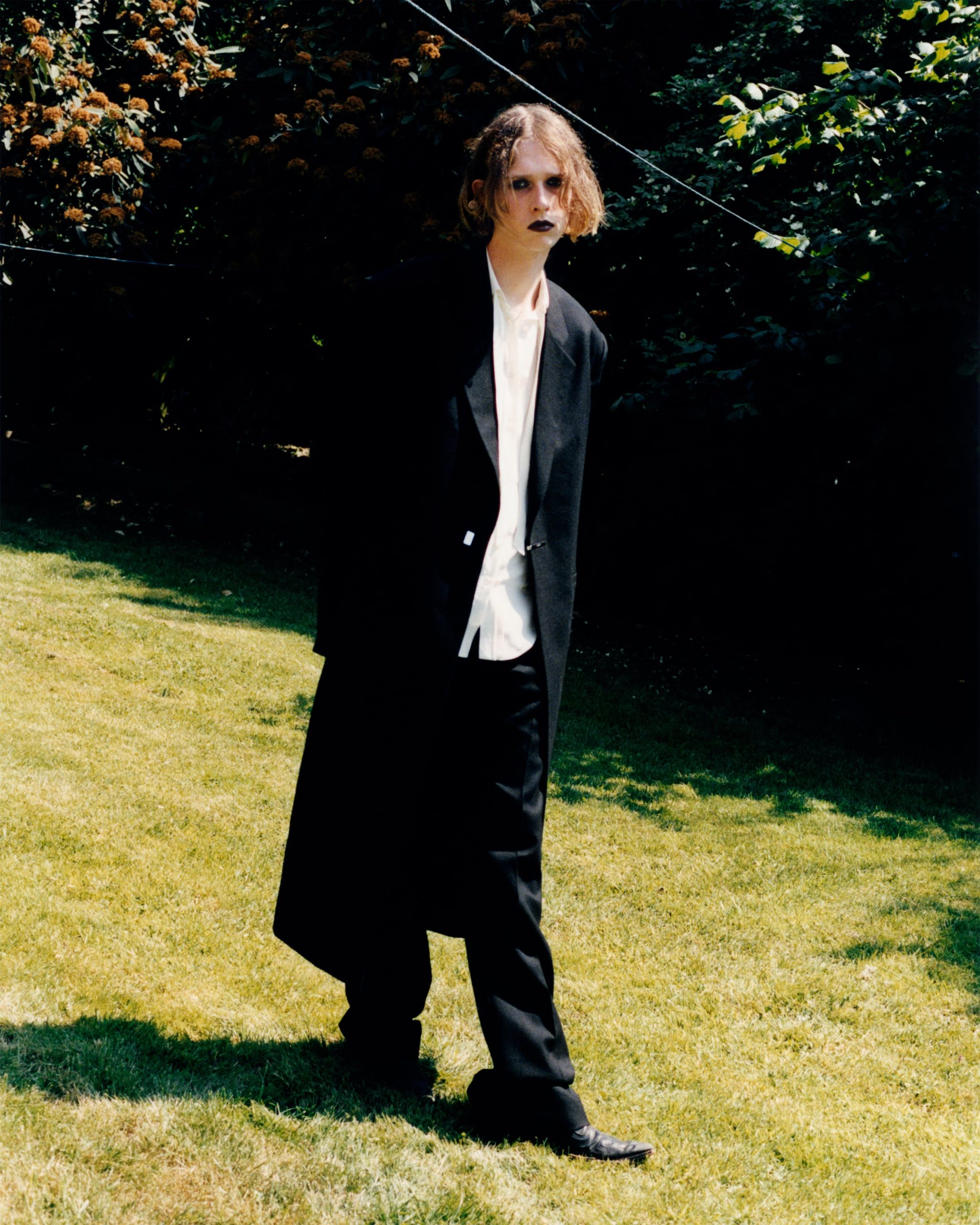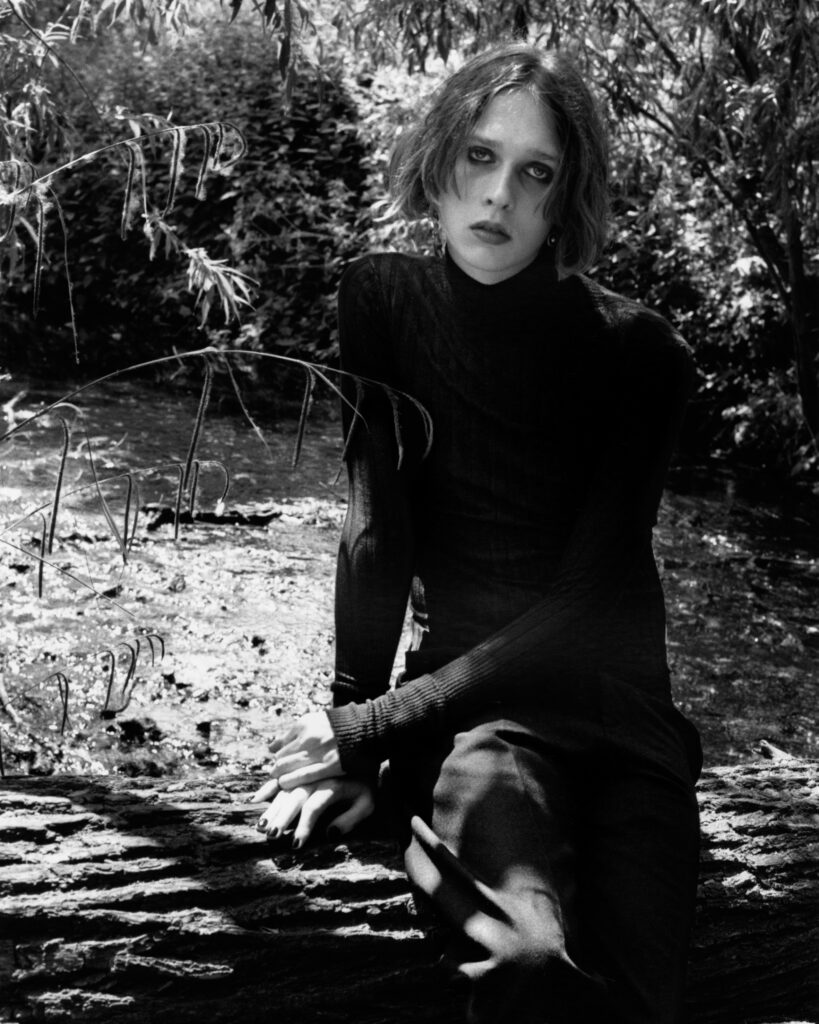
One Vertebrae At A Time
July is usually a transitional month when one handles the last matters at hand headed for the summer break. For British-French songwriter Lauren Auder, July was a month particularly charged with meaning, as she was about to release her first LP, The Infinite Spine, crowning a 5 years process of exploration and experimentation whereby the London-based songwriter broods her distinctive sound. NR spoke with her during the last days leading to the album’s release for its Personal Investigation Issueto retrace the influences and processes behind the record and her approach to music, art, and creativity. A conversation that, much like her music, uses a given particularity to paint a not necessarily bigger, but surely broader, picture.
Andrea Bratta: First things first, congratulations are in order! Your first LP is on the way! How do you feel? how are you living these last weeks leading up to it?
Lauren Auder: It’s taken such a while. And I still feel really proud of this journey, which is telling, and I’m really happy about that. It’s my first time living with something for so long, and I still feel like I can stand behind it. It’s a great feeling.
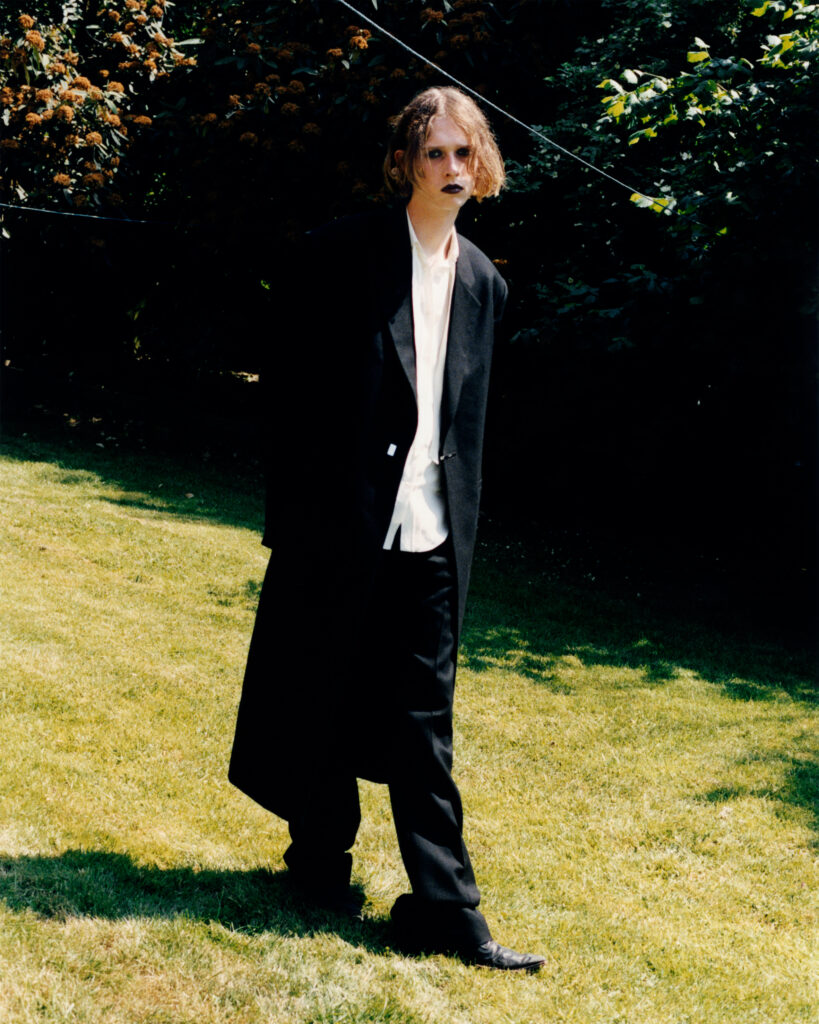
Andrea Bratta: With 3 Eps under your belt in a 5 years span and an already very distinctive sound, how did you approach this first LP? Is it a milestone for you, the completion of a process? Is this new record a crystallization of what you’ve been, so far, as a musician?
Lauren Auder: Until recently, I wasn’t ready to commit to a full-length album. And the album format is something I’m really a fan of; that’s how I’ve always listened to music and have always kind of come to comment on music, so it is a big moment for me. And I think I spent the past few years making these EPs and kind of testing things out. When I made the first EP, I never even considered who I wanted to be as a musician. I was kind of figuring it out as I was going along. And progressively, there was experimentation and new directions over these few pieces. And specifically, with the last EP, which was one that was maybe a bit less conceptual, the focus was much more on trying out different palettes. And coming to LA really helped me to decide where exactly I wanted to sit on this record and what I wanted to bring forth from these past records, what really worked for me, and the aspects that I wanted to push further. So it feels like those three records were the building blocks to make the sound of this first LP what it is.
Andrea Bratta: You said the last record was less conceptual and mentioned you’ve been focusing on sound palettes with it. What’s your process? Does it start with images or a certain sound you have in mind? Or an experience?
Lauren Auder: Well, for the upcoming record, I had the name of it before anything else. It appeared to me as a very striking and evocative image [The Infinite Spine.] Everything in the record revolves around it. It feels ironic to say, but I’m not necessarily a primarily musical person. I’m obsessed with music, and I listen to it all the time. But it’s not necessarily a chord, a sound, or a song that will be the inciting factor in my creative process. It’s always more of a 360 degrees multimedia thing, and it’s mostly down to words; that’s really where I get to define my path forward —as I said, I just had this image in my mind that felt so evocative, sort of ancient, some kind of Ouroboros. But it also felt very current, something out of a body horror movie, frightening and confusing. The spine is, no pun intended, the backbone of our existence. This image felt like an opening to such a fruitful path to follow down and unfold—a lot of the lyrics on the album are also quite intense and visceral, and I think the process behind them, even if you put it purely visually, is the idea of unfolding this circular, infinite spine and creating some road forward from there.
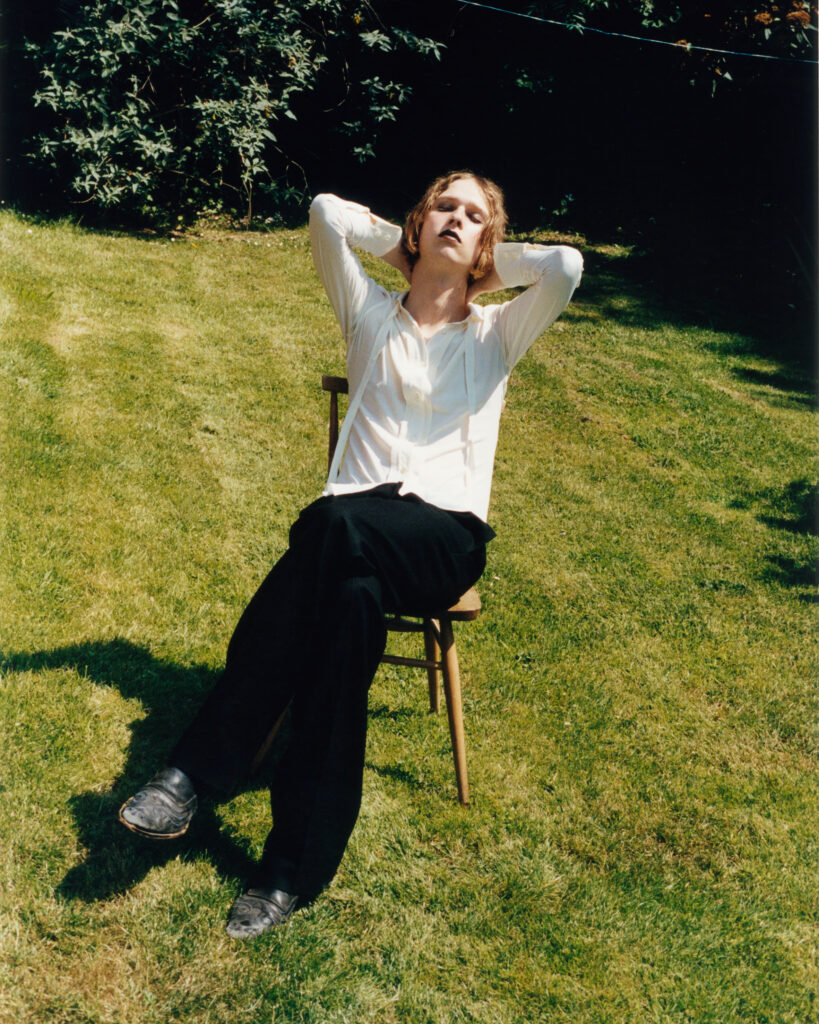
Andrea Bratta: You just referenced body horror and have a song called “Hauntology,” a term referring to Jacques Derrida, Simon Reynolds, and a specific cultural lineage in music and literature. Your music is clearly informed by literature, cinema, and all manners of influences. So now I am thinking, why music? Is there something that drew you to this particular medium? A conscious decision that made you say, “This is it.” Or was it more of a natural predisposition, and then came the realization of the reasons why you express yourself through music?
Lauren Auder: On the one hand, I hope to explore and branch out into many different mediums over my life. Life is very long, and I doubt that music will be the only one for me. What appealed to me immediately is the collective experience that music allows. That’s a quite rare component that doesn’t exist to the same extent in other forms of expression. In cinema, potentially, you can feel that, but there’s nothing quite like experiencing music with other people in the way it’s shared. That made me feel music was the medium for my message. What I’m getting at in The Infinite Spine is some desire for collectivity. So that was the reason for it on a conceptual level, and then on a purely emotional and social level, I’ve always been around people that make music, and I’ve always lived around music, and well, I love music, simply put —that’s the other thing. It works on all those fronts, but what attracts me is the idea of a collective shared experience that I can be part of.
Andrea Bratta: Speaking of shared experiences, contemporary culture lately shifted towards an atomization of the personal experience. Following up on what you said just now, your music starts with the particular and opens up to a generalization that someone who doesn’t directly relate to your experience can latch onto. How do you deal with bearing intimacy and transform it into something that others can relate to, enjoy, and share?
Lauren Auder: I think it often comes to making work as someone who greatly appreciates and consumes music. Back of my mind, I’m always asking myself, “How do I relate to the work I consume? And what enjoyment do I get? How do I find myself hooked to a certain tune?” The smaller and more idiosyncratic the focus of a piece of art, the easier it is to relate and project onto it your personal meanings. I realized that if I wanted to talk broadly, I couldn’t do that in large strokes; the way to express this stuff is by going as deep as possible and as micro as possible. Ultimately, no matter how infinitely small or infinitely personal the experiences, people are very similar to one another, and so is the kernel of our different experiences. I’m a huge folk and country music fan, and as I listen to that music, I’m listening to someone who has an experience that is totally different from mine, and most of the time, it’s really soul-bearing and deeply personal, as you say, and yet, that is the moment that I feel the most connected to someone, it’s not when they’re trying to reach out to me, it’s when they’re letting me in.
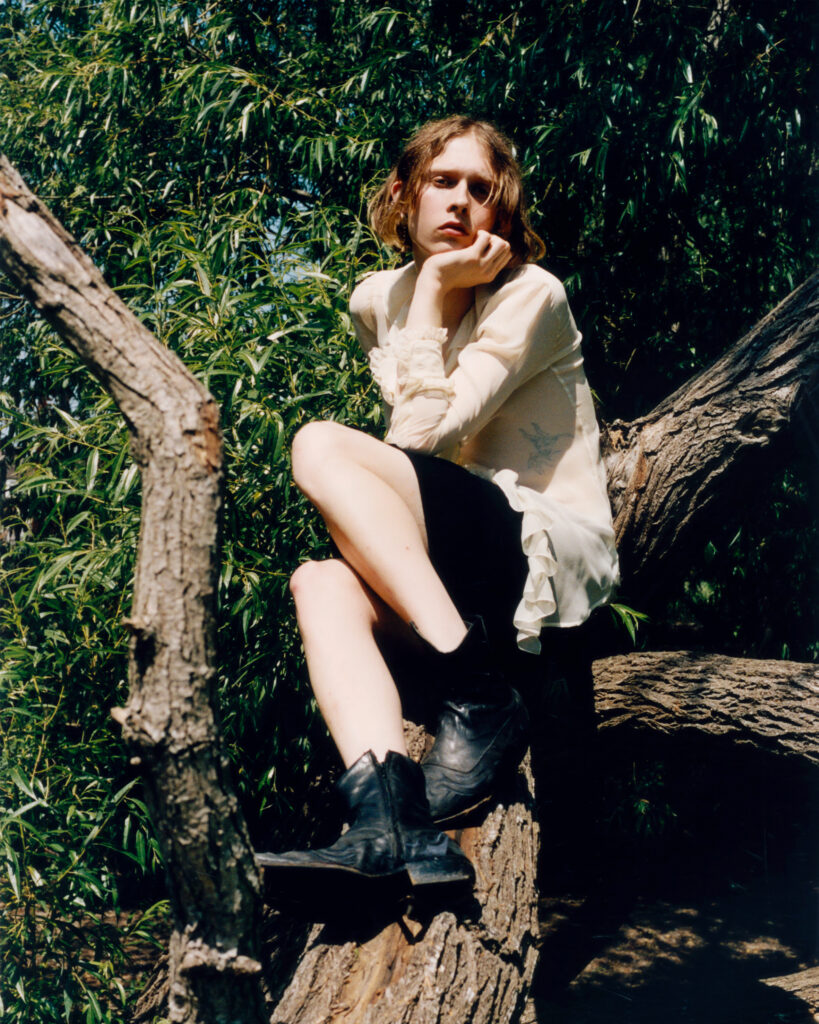
Andrea Bratta: Another element that I’m curious about is the broad taste in music that yours gives away. Genre-bending is imprinted in our generational ethos as listeners and, in your case, as a musician, and with a tool like the internet, one can get easily over-informed, especially if jumping between disciplines. I know I do, at least. How do you approach the myriad of information and content that we are used to engage with? Does that sometimes confuse your creative process?
Lauren Auder: It’s something I’m still trying to figure out, these bridges between all the facets of my personality and interests and all this stuff. We live in a world where everything will be inevitably textured, we’re constantly referring back to a million things; there’s no way for me to even have a conversation without doing this. My true challenge is finding a way to keep everything together coherently. But it is fun and stimulating that we’re all building maps toward our cultural heritage. And in terms of making a record, if I’m using a certain instrument or some sound or whatever, or even quoting another drum pattern or sampling, these are the things that feel exciting because they are a nod to something that other people will pick up on, all these kind of things that immediately have a cultural cache. Instead of trying to isolate myself or deny intertextuality, I like to have these clear nods to what inspired me, another way to open up and hold a handout to the listener and be like: “This is where I’m coming from.”
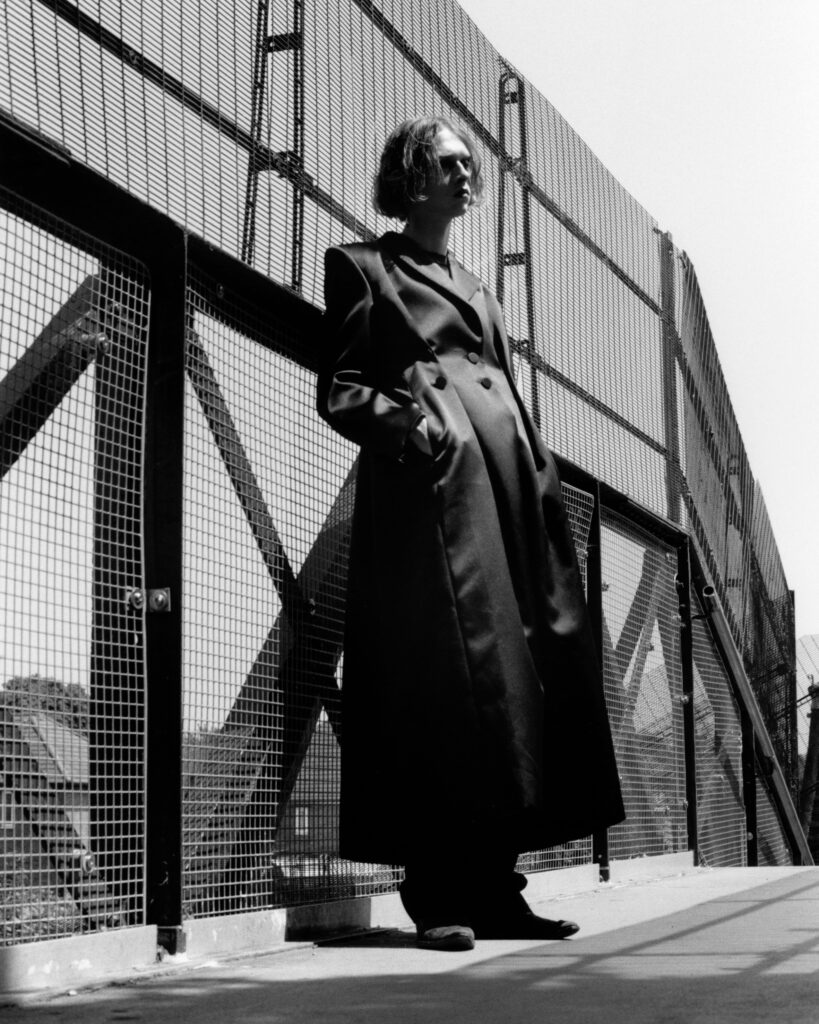
Andrea Bratta: As you pour your own personal universe with its stories and points of reference into your music, do you prefer to retain control while you work on your music, or do you let go and invite others into your process? Do you believe in collaboration?
Lauren Auder: Everything very much starts alone — the first melody, the titles, the lyrical flair, or thematic ideas, I will work on them in a quiet, isolated way. But, as I was saying earlier, one of my favorite things about music is the communal aspect of it, so it’s always been exciting to inject someone else’s perspective into my work or to have someone else kind of bring part of themselves into it. I definitely have a precise vision for how I want things to sound, but that’s also informed by my peers and, you know, the people I listened to and who I’ve collaborated with in the past. Once the ball is rolling, conceptually, it feels really exciting to open the doors to others, let them into my world, and take a step back to see what I’ve been making from someone else’s perspective. I think it helps with the idea of what we were saying earlier about finding hooks for who listen to get involved.
Andrea Bratta: You’ve been described as a boundary-defying artist. Your lyricism and hybrid sound make me think of Avant-pop, a term describing music that balances experimental or avant-garde approaches with stylistic elements from popular music, probing mainstream conventions of structure or form. Are there some musical/artistic movements you see yourself ascribable to, or do you reject categorization altogether?
Lauren Auder: Everything that is avant-garde adjacent is something I relate to in terms of the things that I really enjoy, and I listen to. It is a useful descriptor. Whether or not it’s precisely accurate is a whole other question. I’m quite proud to say that I genuinely don’t think a lot about genre when I’m making music, I’m lucky to be part of a generation that has had so much exposure to so many different things, so I guess labels can come in handy, but ultimately I don’t fully believe in them.
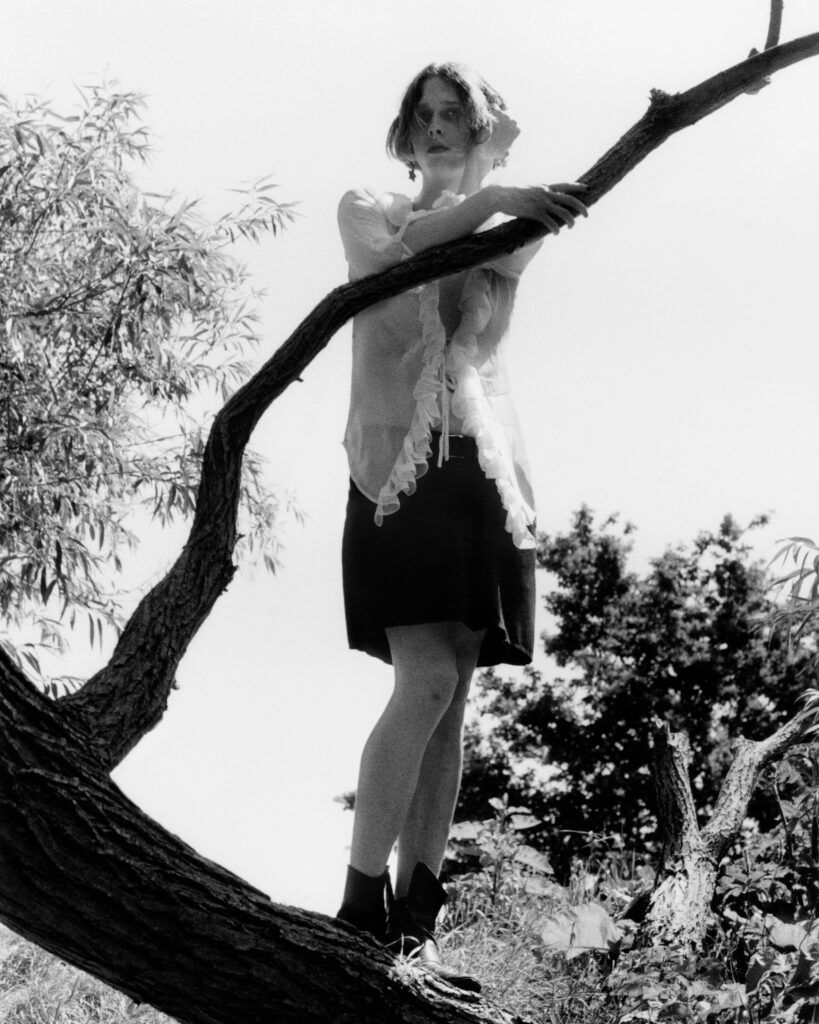
Andrea Bratta: So what were the inspirations that guided you while making the Infinite Spine?
Lauren Auder: As I said earlier, it was a whole process that took five years for me. So there would be quite a lot to mention! It was constantly evolving, but I definitely was fixated on pretty straight pop records lately, even though those are not my natural inclination. But I knew I wanted to integrate a pop-ish angle to this record, so I tried to immerse myself in a lot of solidly written pop music. That was very useful and helpful to me, as well as going back into the things that first made me fall in love with the concept of bands and music, mostly alternative 90s rock and noise. That was another sonic element I wanted to bring more to the forefront on this record than I have in previous records.
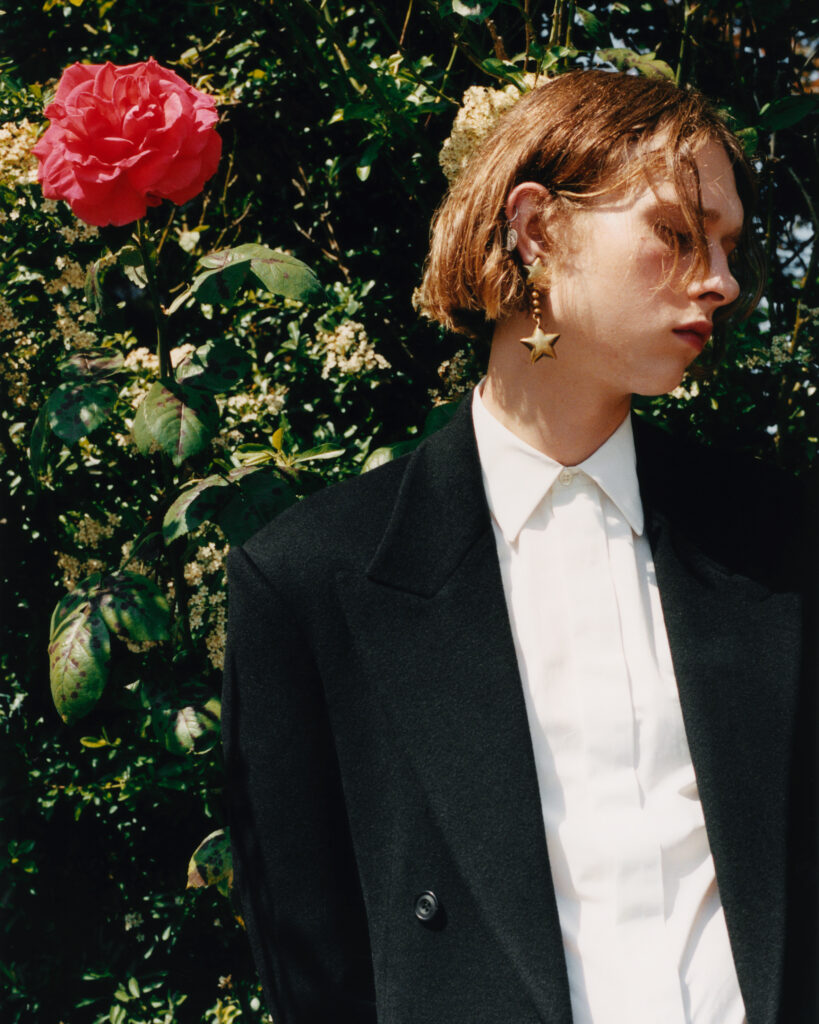
Andrea Bratta: You mentioned that you eventually see yourself moving to other mediums. Now that this record is out, and you closed, in a way, this 5 years chapter, what are you picturing ahead for you?
Lauren Auder: I want to continue living in this record, and in this world, you know? I don’t want to move on from it, I want to be responsive. This record has been such an insular thing, even though I’ve collaborated with many people, but they were a small group of about 15 people, so I want to see how it unfolds and what it means to others. It is not a closed chapter, is what I’m saying. I want to give it a chance to exist in a way where I can be responsive to how it exists now.
Andrea Bratta: Sort of letting it breathe. I’ve seen on your Instagram that you disclosed the recent completion of your transitioning process right after you announced your record. It’s a big synchronicity. Are these two things parallel, that they somehow brought about each other?
Lauren Auder: I don’t think so. I don’t know, these are like the mysteries of the world. The way things coincide without apparent reason.
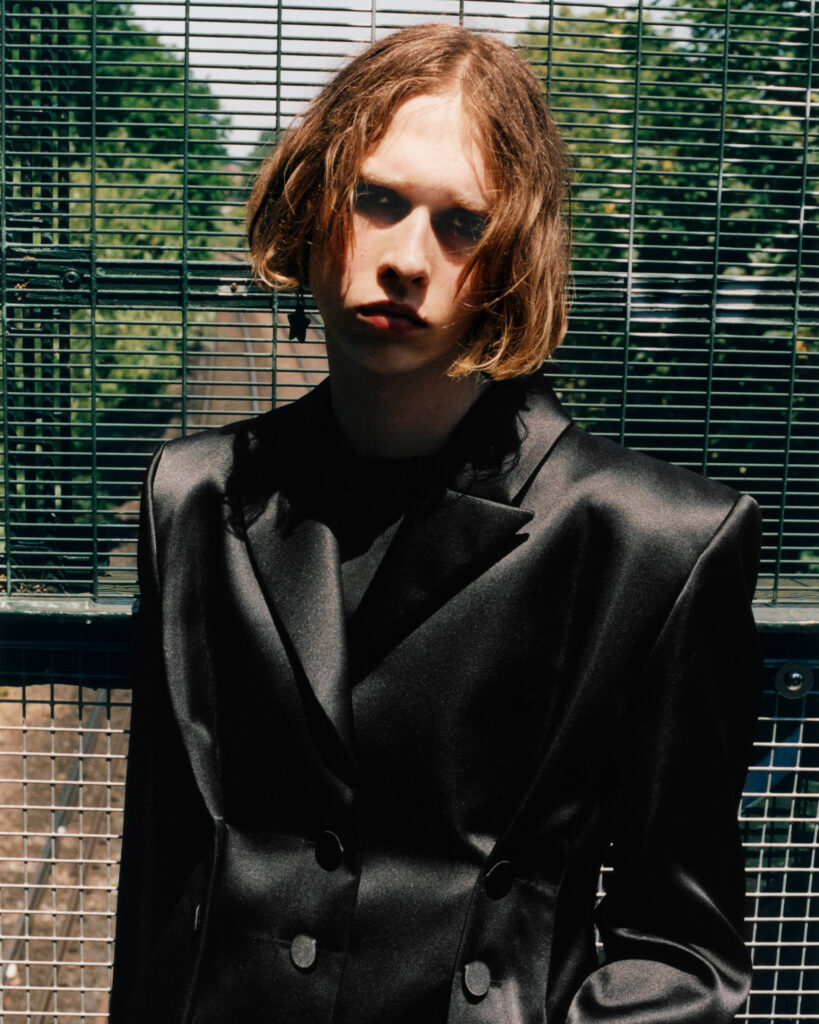
Andrea Bratta: I forgot to mention that the issue is titled “Personal Investigation.” Kind of fits what we talked about; that’s another coincidence for us.
Lauren Auder: Exactly. But it happens this way. That’s what I guess what we were saying about letting things breathe, you know? Letting these moments exist; that’s a very good note we can end on.
Team
Photography · James Robjant
Styling · Warren Leech
Makeup · Philippe Miletto
Hair · Hiroshi Matsushita
Special thanks to Good Machine PR
